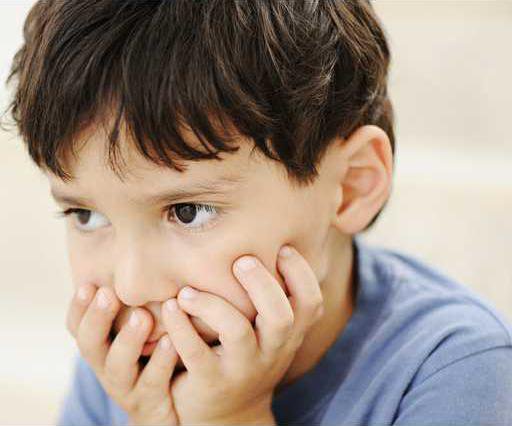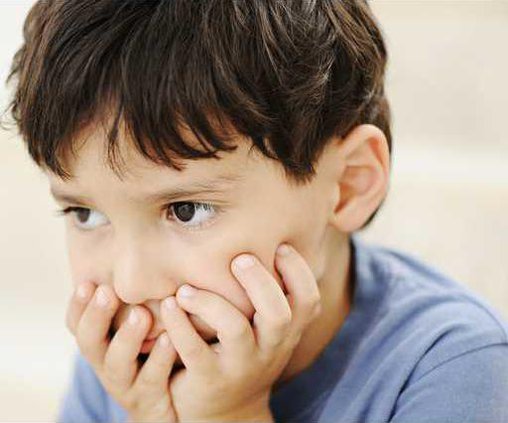Parenting children with ADHD can be very difficult and frustrating at times, but with some skills and effort, parents can help their children and families to have a productive and happy life.
While counseling, I come across a lot of parents asking what they can do calm down their children with ADHD and get them to start following directions.
Below are some tips to start working on today.
1. Happy and healthy parents
As a parent of any child, you need to be healthy and happy, but this is magnified even more when living with a child with ADHD. It is extremely important for you to get enough sleep, exercise, eat right and do activities you enjoy. When you take care of yourself, its more likely that you will have the patience and stamina to successfully parent your child.
Taking breaks from your child when you're feeling wore down is beneficial and will help you stay ready for upcoming challenges. Parents need to remember that they are the most important role models for their children. When you are upbeat and positive, it is a lot more likely that your children will model this behavior.
Being positive will allow you to deal with some of the frustration that you will experience while mentoring them. Try to remember your child has a disorder that makes it very difficult for him or her to listen to instructions, let alone follow them. Understanding this, helps you to realize your child isnt trying to be a bad kid or not listen to you. Your child can be very frustrating at times, and you need to remember the good things about him or her. Writing down some of your childs strengths can be an easy and effective way to remember all the great things about them.
2. Structure
All children need structure and positive reinforcement, but children with ADHD need it even more to learn and grow. Creating structure is the most important parenting tip that I can offer for parents. Discussing your expectations with your children is a critical starting point.
Once children know what to expect they can be held accountable for their actions. Posting your expectations for your child to see is very helpful. Lots of parents use a white board or something like it to show their child what their goals and expectations are. Having mutual agreed upon goals and incentives seems to make the most impact.
When your child helps decide these goals and incentives he or she becomes much more motivated to obtain them. Rewarding good behavior as soon as possible has been shown to make the most difference.
Setting a routine is an easy way to make a structure that can be followed every day. Parents should help their children come up with a routine for their day. Everything throughout the day can be structure from waking up, eating breakfast, getting home from school, dinner time, homework and bedtime.
3. Exercise, sleep and diet
Children with ADHD have a ton of energy. Exercise is a great way to get some of this energy out. Exercise has numerous benefits to children and adults. Exercise can be fun, helps to fight depression and anxiety, improves brain function and concentration, and promotes better sleep. Parents should encourage their children to exercise at least 30 minutes a day. Finding a sport your child enjoys is an easy way to get your children interested in exercise, and it can help them learn valuable social skills.
Children with ADHD suffer from a lack of concentration and too little sleep only makes this problem worse. Restricting television and other screen time around bedtime is helpful. Caffeine can cause your child to struggle to fall asleep. Having your child have some quiet time before bedtime can be very beneficial.
Diet can really affect your childs behavior. Monitoring and modifying what, when and how much your child eats can help decrease the symptoms of ADHD. Some children with ADHD struggle having regular meal time and can forget to eat for long periods of time. Setting up a routine where your child eats about every three hours, avoids junk food and avoids foods high sugar is important.
4. Social skills
Children with ADHD have some great quality about them, but too often these children struggle with social skills that cause them to have difficulty making friends and having good self-esteem.
Children with ADHD struggle with social cues, talking too much, invading personal space and cant seem to wait their turn. With all of this energy and inattention, these kids can become the target for bullying. Speaking clearly to your child about some of his or her behaviors being inappropriate and role-playing proper behavior is effective.
Children with ADHD may be told they're bad because of their behavior. When children hear this negativity too often they begin to develop negative beliefs about themselves. This is why it is so important for parents to focus on the positives aspects about their children.
Parenting a child with ADHD can be difficult, but with patience and effort parents can help their children grow up to be a happy and healthy adult.
If you need some more tips or help consult your local mental health therapist.
While counseling, I come across a lot of parents asking what they can do calm down their children with ADHD and get them to start following directions.
Below are some tips to start working on today.
1. Happy and healthy parents
As a parent of any child, you need to be healthy and happy, but this is magnified even more when living with a child with ADHD. It is extremely important for you to get enough sleep, exercise, eat right and do activities you enjoy. When you take care of yourself, its more likely that you will have the patience and stamina to successfully parent your child.
Taking breaks from your child when you're feeling wore down is beneficial and will help you stay ready for upcoming challenges. Parents need to remember that they are the most important role models for their children. When you are upbeat and positive, it is a lot more likely that your children will model this behavior.
Being positive will allow you to deal with some of the frustration that you will experience while mentoring them. Try to remember your child has a disorder that makes it very difficult for him or her to listen to instructions, let alone follow them. Understanding this, helps you to realize your child isnt trying to be a bad kid or not listen to you. Your child can be very frustrating at times, and you need to remember the good things about him or her. Writing down some of your childs strengths can be an easy and effective way to remember all the great things about them.
2. Structure
All children need structure and positive reinforcement, but children with ADHD need it even more to learn and grow. Creating structure is the most important parenting tip that I can offer for parents. Discussing your expectations with your children is a critical starting point.
Once children know what to expect they can be held accountable for their actions. Posting your expectations for your child to see is very helpful. Lots of parents use a white board or something like it to show their child what their goals and expectations are. Having mutual agreed upon goals and incentives seems to make the most impact.
When your child helps decide these goals and incentives he or she becomes much more motivated to obtain them. Rewarding good behavior as soon as possible has been shown to make the most difference.
Setting a routine is an easy way to make a structure that can be followed every day. Parents should help their children come up with a routine for their day. Everything throughout the day can be structure from waking up, eating breakfast, getting home from school, dinner time, homework and bedtime.
3. Exercise, sleep and diet
Children with ADHD have a ton of energy. Exercise is a great way to get some of this energy out. Exercise has numerous benefits to children and adults. Exercise can be fun, helps to fight depression and anxiety, improves brain function and concentration, and promotes better sleep. Parents should encourage their children to exercise at least 30 minutes a day. Finding a sport your child enjoys is an easy way to get your children interested in exercise, and it can help them learn valuable social skills.
Children with ADHD suffer from a lack of concentration and too little sleep only makes this problem worse. Restricting television and other screen time around bedtime is helpful. Caffeine can cause your child to struggle to fall asleep. Having your child have some quiet time before bedtime can be very beneficial.
Diet can really affect your childs behavior. Monitoring and modifying what, when and how much your child eats can help decrease the symptoms of ADHD. Some children with ADHD struggle having regular meal time and can forget to eat for long periods of time. Setting up a routine where your child eats about every three hours, avoids junk food and avoids foods high sugar is important.
4. Social skills
Children with ADHD have some great quality about them, but too often these children struggle with social skills that cause them to have difficulty making friends and having good self-esteem.
Children with ADHD struggle with social cues, talking too much, invading personal space and cant seem to wait their turn. With all of this energy and inattention, these kids can become the target for bullying. Speaking clearly to your child about some of his or her behaviors being inappropriate and role-playing proper behavior is effective.
Children with ADHD may be told they're bad because of their behavior. When children hear this negativity too often they begin to develop negative beliefs about themselves. This is why it is so important for parents to focus on the positives aspects about their children.
Parenting a child with ADHD can be difficult, but with patience and effort parents can help their children grow up to be a happy and healthy adult.
If you need some more tips or help consult your local mental health therapist.








